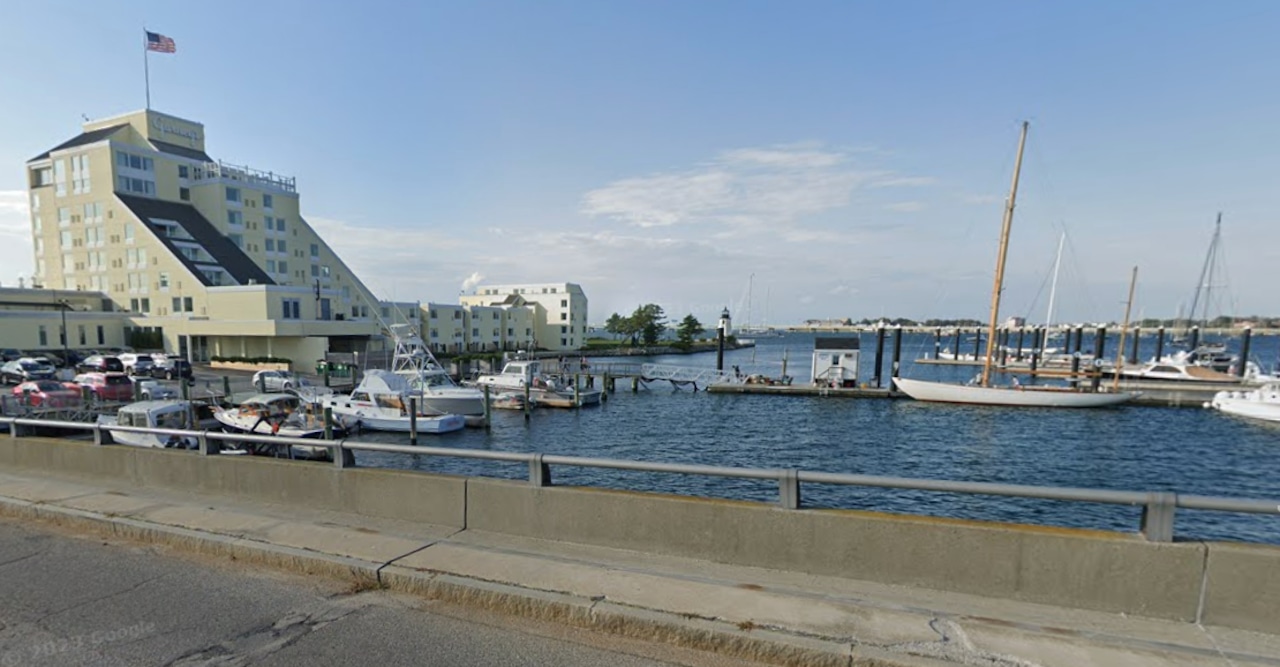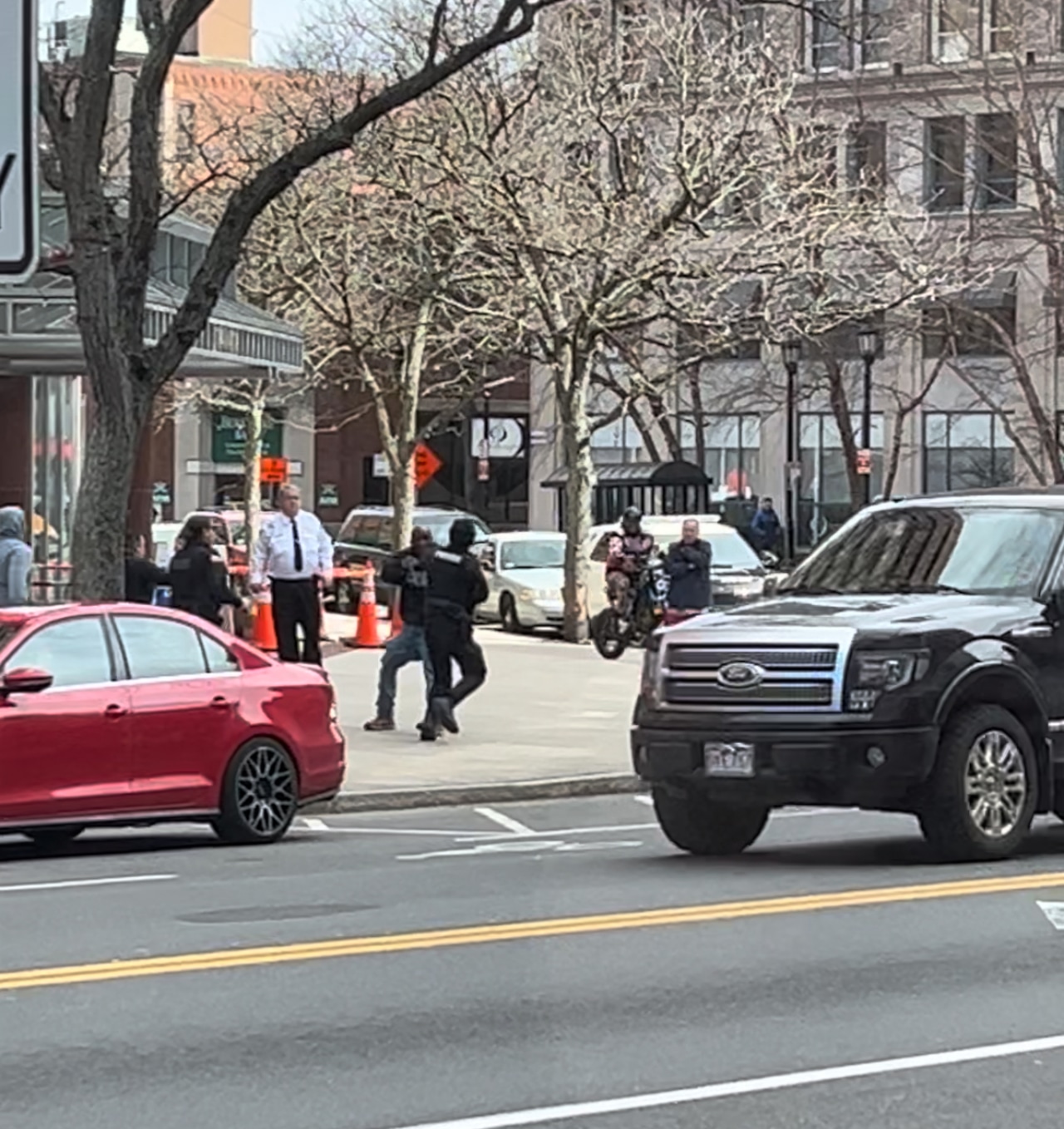There were some people that decades ago discouraged Cynthia Sutphin from growing lavender on Cape Cod. It wasn’t as popular a plant as it is today, and there were challenges getting the Mediterranean flower to grow in the soils of Cape Cod.
Sutphin tried it out anyway, and now she and her husband, Matthew Sutphin, have owned Cape Cod Lavender Farm located off Weston Woods Road in Harwich for 28 years.
The farm is surrounded by 100 acres of conservation land but within their land lies 12-acres of property which includes a small store, fairy houses, and several thousand plants for the public to enjoy.
- Read more: Visiting Hudson? MassLive found these 15 things you should absolutely do on your next trip
“Lavender gained popularity,” said Cynthia Sutphin. “We kind of have been able to ride that wave because it’s so good for so many things. It’s the most versatile plant on Earth, because you can eat it, it smells great, it appeals to all the senses.”
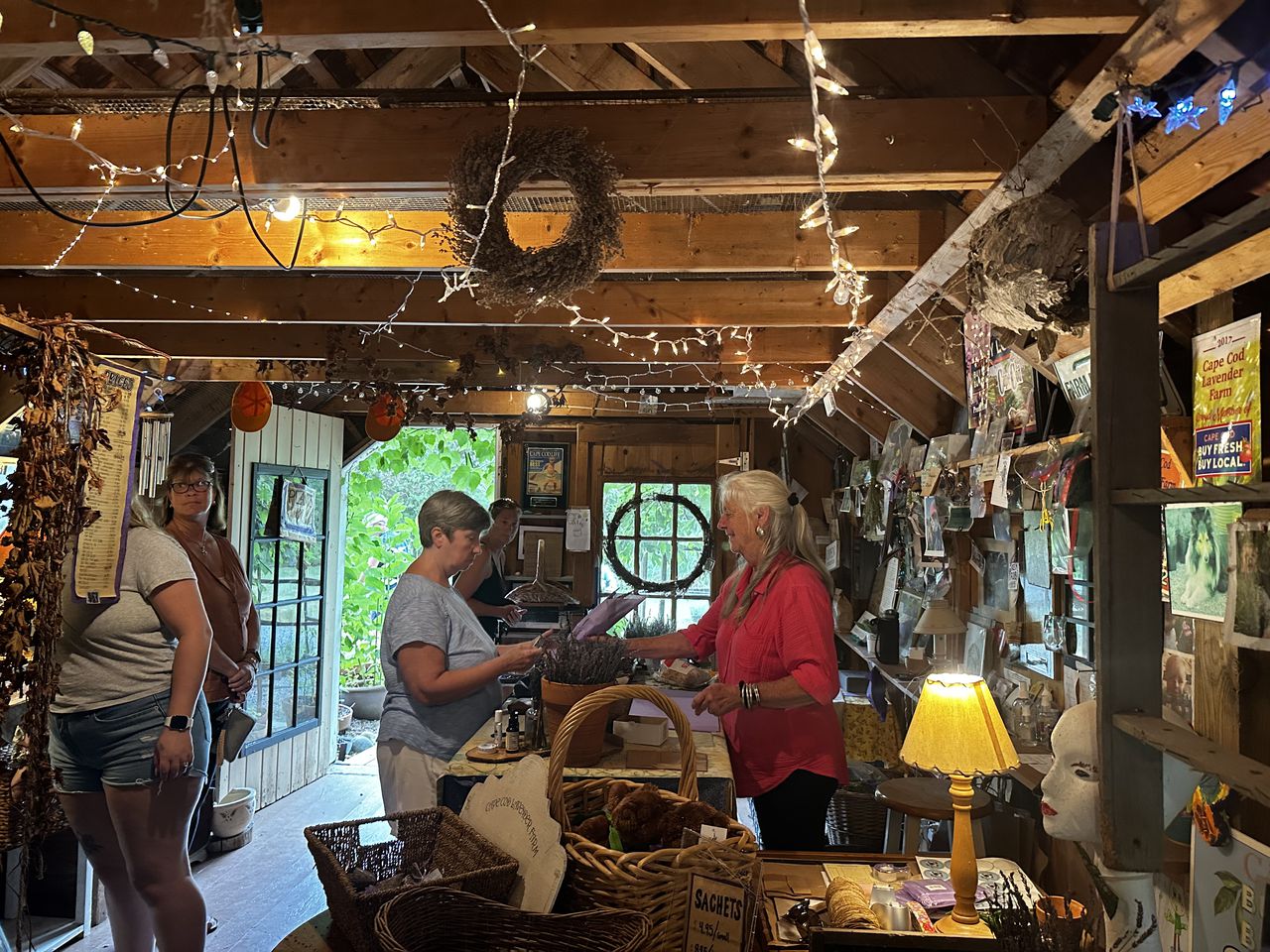
Cynthia Sutphin, owner of Cape Cod Lavender Farm serves customers inside of her store. (Liesel Nygard)
Currently the farm sells 25 lavender products, and a lot of them are locally made in Cape Cod such as their soaps, lavender marmalade, and a roll on with CBD and lavender.
Additionally, Sutphin has partnered with people outside of Massachusetts. She has two candlemakers, one in Pennsylvania and another in New Hampshire, and also a woman from Ohio who supplies Sutphin with body creams and body wash.
The farm is opened to the public from March until Christmas but people can still buy their products online.
“I was actually discouraged from doing it,” said Sutphin about her lavender farm. “I chose it because nobody was doing it. I also did homework before I decided to do it because I wasn’t sure if it was going to be a good choice. “
While speaking with other agricultural experts about lavender, Sutphin was told that Cape Cod’s climate “is not right” and “the soil is not right” for the Mediterranean plant.
“I did a test garden of 400 and they thrived the first year,” said Sutphin. “That’s when my husband gave me several thousand more the next year.”
The reason for the lavender’s success was because of Cape Cod’s moderate climate, sandy soil and the coast’s winters that allowed the plant to go into their dormant period.
The only trouble Sutphin came across is the acidity of the soil, since lavender likes sweeter soil. By liming, which is the process of spreading limestone in the soil, causing the pH to go up to seven or above, Sutphin was able to create that sweeter soil the lavender craved.
Now Sutphin collects over a 100 bunches of lavender in the first two to three weeks of lavender’s harvest in June and July.
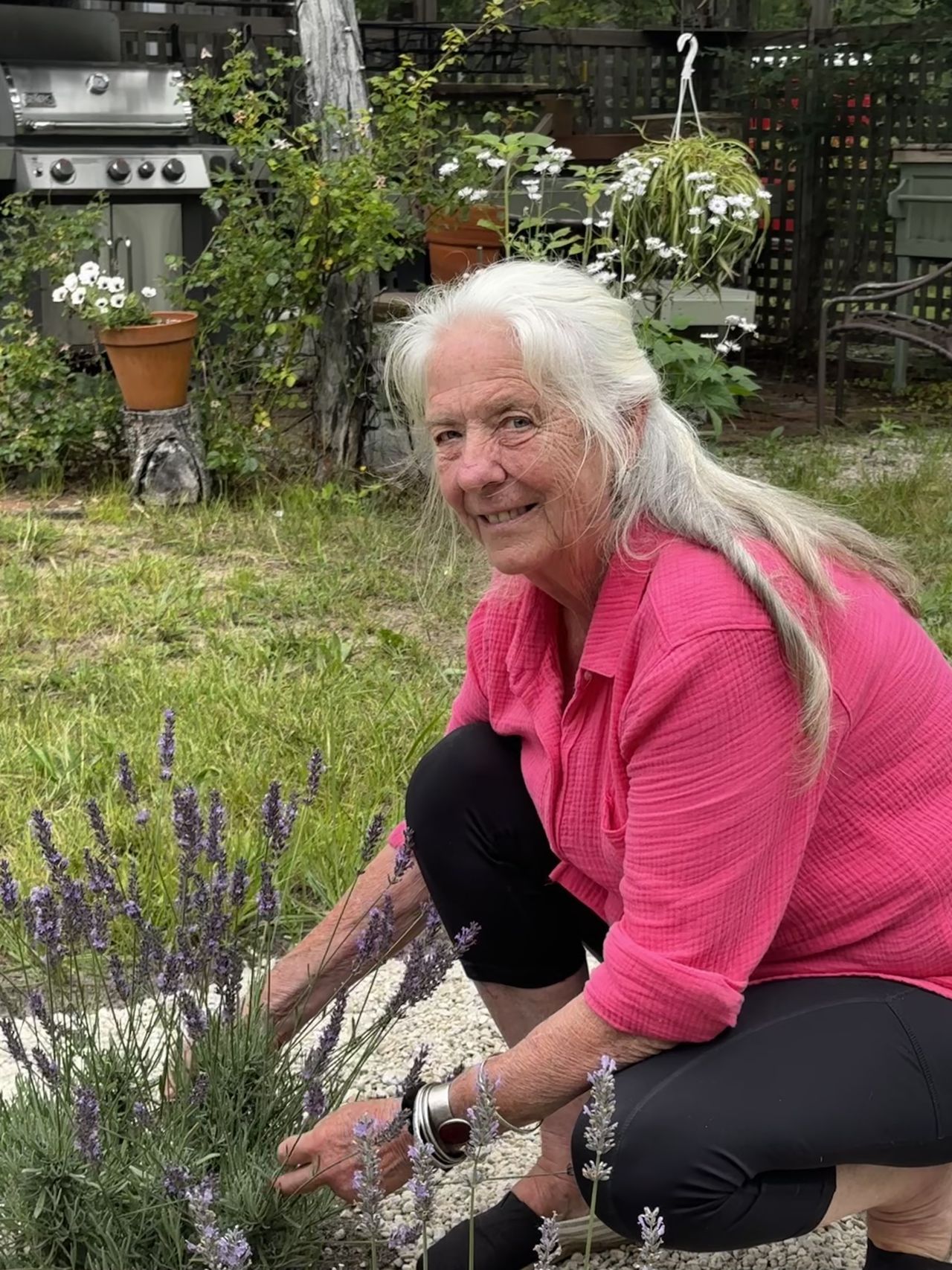
Cynthia Sutphin maintaining her lavender plants (Liesel Nygard)
After picking her bunches, Sutphin distills the flowers she doesn’t sell fresh, which results in the separation of the plant and its properties, providing about two gallons of hydrosol and one to two ounces of oil.
The hydrosol is sold as a face toner and the oil is sold as a way to alleviate headaches, bug bites, bee stings and more according to Sutphin.
While touring the farm, Sutphin suggests people do a self-guided tour by walking around, enjoying the lavender field, and visiting the fairy garden.
On each side of the fantasy trail are small fairy and toad houses, and the trail leads to a large stone castle. Stonemason Eddie Foisy made the path about 20 years ago and today it’s decorated with shiny coins as “offerings” for the fairies.
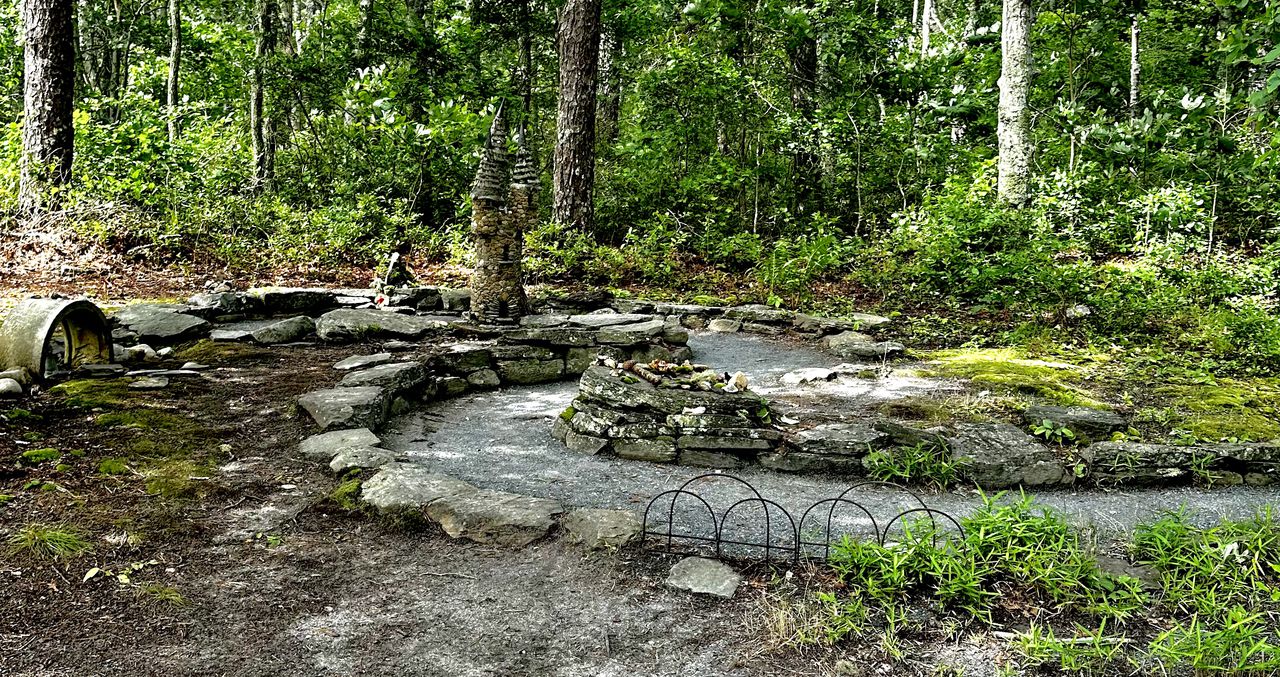
Near Cape Cod Lavender Farm’s lavender fields is a fairy house trail created by stonemason Eddie Foisy. (Liesel Nygard)
Sutphin added that people can also sit on their benches and take in the smell of lavender if they don’t want to walk around the farm. But if people do want to walk, especially with their dogs, there are 60 acres worth of maintained trails off the farm.
“We love dogs,” said Sutphin. “We don’t allow them on the farm but we have trails that they can walk…. It’s all conservation land… all preserved for walking.”
Sutphin has no plans of expanding the farm. In fact, she prefers to stay small, adding that the lavender farm is “an actual physical pleasure to visit.” She wants the farm to continue being a destination while still maintaining an online presence.
At the end of the interview, Sutphin spoke about the future of Cape Cod Lavender Farm, mentioning she had four kids, whom she hopes “will take it over when it’s my time” so they can carry on the farm’s success.
In the mean time, the lavender farm is doing such good business that Sutphin said she doesn’t have any plants left over for herself.
“There was a time when I had plenty leftover to dry,” she said. “Those days are long gone.”



